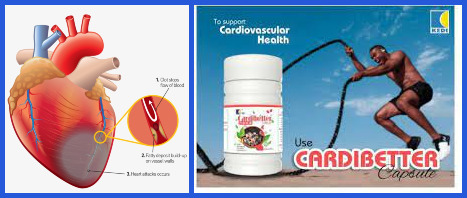The term “heart disease” refers to different types of heart challenges that affect the heart as an organ. Coronary artery disease (CAD) is the most common type of heart disease, and this affects the flow of blood to the heart. A heart attack occurs as a result of a decrease in blood flow to the heart.
Engaging these 10 powerful tips will help you reduce the chances of getting heart disease:
1. Control your blood pressure.
Prevention is better than cure, but most people prefer cure to prevention. Checking your blood pressure is a means of preventing high blood pressure which is a major risk factor for heart disease.
It is advisable to always create time to check your blood pressure, no matter how busy your work schedule is. Also, take steps to avoid lifestyle changes that might affect your blood pressure.
2. Control your cholesterol and triglyceride levels. Avoid consuming a diet with a lot of fats. Apart from the risk of obesity, high levels of cholesterol in the bloodstream can clog your arteries and raise your risk of coronary artery disease and heart attack.
When last did you perform a diagnostic check on your blood cholesterol level? Is it high, low, or normal? Triglyceride is another type of fat in the blood that can also raise the risk of coronary artery disease, especially in women if not checked. A good way of avoiding the risk of heart disease is by keeping your cholesterol and triglyceride levels under control.
3. Stay at a healthy weight.
Research statistics have shown that people who are overweight or having obesity stand the chance of an increased risk for heart disease. They are also linked to other heart disease risk factors like high blood cholesterol and triglyceride levels, high blood pressure, and diabetes. Weight control can help lower these risks.
4. Eat a healthy diet. Having control over what goes into your mouth will go a long way in avoiding heart disease. Limit saturated fats as much as possible, including foods high in sodium, and added sugars.
Eating a balanced diet with plenty of fresh fruits, vegetables, and whole grains, helps to reduce heart disease. The eating plan that can help you lower your blood pressure and cholesterol level is the DASH diet.
5. Get regular exercise. Exercise helps the body’s cells, tissues, and organs to function properly. Other benefits from exercise include strengthening your heart and improving your circulation. It also enables you to maintain a healthy weight and normal cholesterol and blood pressure levels. Exercise remains the easiest way to avoid any form of risk of heart disease.
6. Limit alcohol.
Excessive consumption of alcohol increases the alcohol content in your blood, thus raising your blood pressure. Alcohol affects the liver, and can indirectly cause weight gain. Limit your alcohol consumption if you want to have a healthy heart. Both alcohol and increased blood pressure are risk factors for heart disease.
7. Don't smoke. Cigarette smoking is dangerous for your health, and people still smoke. Some people say they smoke because it stimulates their brains for action. Apart from the negative effects, it has on the lungs and the respiratory system generally, the known truth is that smoking has the tendency to increase your blood pressure and this puts you at higher risk for heart disease.
8. Manage stress. Most people go through some types of stress; it all depends on how you manage your stress. People that are well-organized and composed rarely go through stress. Stress goes along with anxiety, and both are linked to heart disease which can raise your blood pressure.
The way some people go about managing their stress is not the best. Such people always want to cope with their stress either by overeating, heavy drinking, and smoking. These actions do not answer the challenges of managing stress. But when you engage yourself in exercise, listening to music, focusing on something calm or peaceful, and meditating, will go a long way in managing your stress.
9. Manage diabetes.
High sugar levels in the blood can lead to diabetes, and having diabetes doubles your risk of diabetic heart disease. This occurs over time when the high blood sugar from diabetes happens to damage your blood vessels including the nerves that control your heart and blood vessels. To avoid this, always check your sugar level, and eat a balanced diet.
10. Make sure that you get enough sleep. Sleep is a form of relaxation. It enables your body cells to regain what it has lost during the day, and also prepares the body for the next day. Inadequate sleep increases the risk of high blood pressure, obesity, and diabetes, and these three things can raise your risk for heart disease.
Most adults need an average of 8 hours of sleep per night, but as you grow older the hours of sleep decreases. Make sure that you have good sleeping habits. Apart from helping against the risk of heart disease, sleep also helps to restore the body’s immune system, thereby preventing illness. Don't forget to contact your healthcare provider if you have frequent sleep challenges.
To achieve quality cardiovascular health, why not use Kedi cardibetter. Learn more about Cardibetter.![]()
